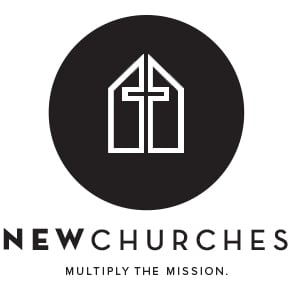Home > Blog > Gospel Opportunities Right Outside Your Door
Gospel Opportunities Right Outside Your Door
By Ed Stetzer

“Good fences make good neighbors.”
Published in 1914, Robert Frost’s famous “Mending Wall” is a classic American poem. Every year, middle school students are tasked with memorizing it and high school students with explaining it. In it, Frost tells the story of two neighbors rebuilding a wall between their two farms. Reflecting on the fact that each year they have to rebuild the same fence as nature persistently tears it down, one of the farmers says “Something there is that doesn’t love a wall, that wants it down.” Yet each time, the other neighbor merely responds that “Good fences make good neighbors.”
Few people will confuse me with a poet, but this poem has stuck with me. So many people have bought into this thinking, believing that the optimal neighborhood is one where people stay on their side of the fence. We chose safety and stability of carving out our spot instead of the unknown and difficulty task of developing relationship. Fences are meant to free us from actually engaging our neighbor, that’s what makes them good.
A common realization of COVID-19 that many have had is that this view is antithetical to our gospel mission. Stuck close to home, we’ve been awakened to these people who live on our street or in our apartment building. Suddenly, those we previously had tried desperately to ignore became a lifeline for human connection. Underneath this realization is a central truth: engaging your community begins with engaging those around you.
God has placed you in your neighborhood or your apartment complex for a reason. He has given you a mission field to build his kingdom by showing and sharing the love of Jesus with those around you. In response, I want to offer three practices Christians should consider in tearing down these fences and engaging their communities with the gospel of Jesus.
1. Submit your Friendships
When I was young in ministry I received one of the most important pieces of advice I ever received: Submit your friendships to the kingdom.
Most people can only have a certain number of friendships in life at any given time. If you want to truly reach your neighbors you need to be willing to make those people your friends. Instead, Christian too often want to engage their neighbors but only to a certain point. They want to reserve their friend slots for church or work. Their neighbors are merely acquaintances, people they just happen to live close to. Yet if you want to engage our community effectively and see lasting fruit you need to be willing to give your time, energy, and affection to your neighbors.
Within this season of COVID-19, this requires intentionality. While I’m thankful for digital technology, our dependence on it this season has the unintended consequence is that many people have allowed opportunities to make connections to slip through the cracks. My point is simple: if you want to grow in this area, now more than ever, this requires purposefully focusing on maintaining connections in your community.
2. Map the Neighborhood
In Christians in the Age of Outrage, I recount a story of when my wife, Donna, and I became convicted over how we were failing to reach our neighbors. We had moved to the neighborhood with grand plans to show and share the love of Christ to those around us but for a host of reasons we hadn’t made much headway.
In talking through what we should do, I remember getting out a piece of paper and drawing a map of our neighborhood:
We drew a diagram of the streets and cross streets, and began to fill it in with everything we knew about each neighbor. Our intention was to be mindful of all the people in the immediate proximity of our house. We wrote down the names of eight of our nearest neighbors who didn’t know Christ. We started to find excuses for our kids to play together. We hosted cookouts and Super Bowl parties, and then we started a Bible study. With every trial, success, and crisis came the opportunity to preach the gospel. Avoiding the “Christianese” that can obscure the gospel, we would emphasize that only in Jesus can we find fulfillment for those most common desires of the human heart—to be known, loved, and valued. Several people attended, and over a year, we saw a key couple in the neighborhood trust Christ, be baptized, and start leading a Bible study in their home.
Drawing a map of the neighborhood was a way of crystalizing our community as a mission field. Reaching our neighborhood can be very abstract until you begin to understand who lives where and what is going on in their lives.
Mapping our neighborhood helped us to visually understand that these people were our neighbors. They weren’t just people who lived near us, they were real people with real lives that we were called to show and share the love of Jesus to while we lived among them. It made us speak and act in concrete terms rather than in the abstract.
In essence, mapping out our neighborhood challenged us truly know the scope of our community.
3. Lead with the Table
Christians can’t expect to make inroads in their neighborhoods and in their broader community if they believe evangelism and mission only takes place at the front door. One of my close friends and fellow pastor once told me, “You can’t say someone’s a friend until they’ve sat at your dinner table.”
In exploring the importance of hospitality in Scripture, Joshua Jipp offers this important definition:
Hospitality is the act or process whereby the identity of the stranger is transformed into that of guest. While hospitality often uses the basic necessities of life such as the protection of one’s home and the offer of food, drink, conversation, and clothing, the primary impulse of hospitality is to create a safe and welcoming place where a stranger can be converted into a friend.
This is a powerful definition for Christians seeking to engage their communities. Hospitality is a primary way we convert strangers into friends. The vulnerability and intimacy of welcoming others into space that society is increasingly telling us to guard, tells them that we value both them as human beings and the opportunity to be in relationship with them.
Obviously, creating any sort of social connection can be challenging in our pandemic world. Yet, if you just look outside your door, God may open your eyes to the work He has already been doing in the houses or apartments you pass by every day. The burden will be upon you to think creatively about how to bring them into your “socially distanced” space. You could have a bonfire, offer to buy groceries or other necessities, or even just go on a walk.
God is already at work in the hearts and minds of those around you, and He invites all of us to join in with Him. In this season, let yourself be surprised by how the small act of opening your home, and offering your time, can open people’s hearts to hear the gospel of Jesus.
